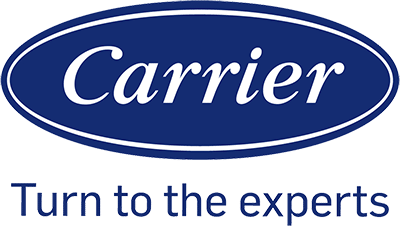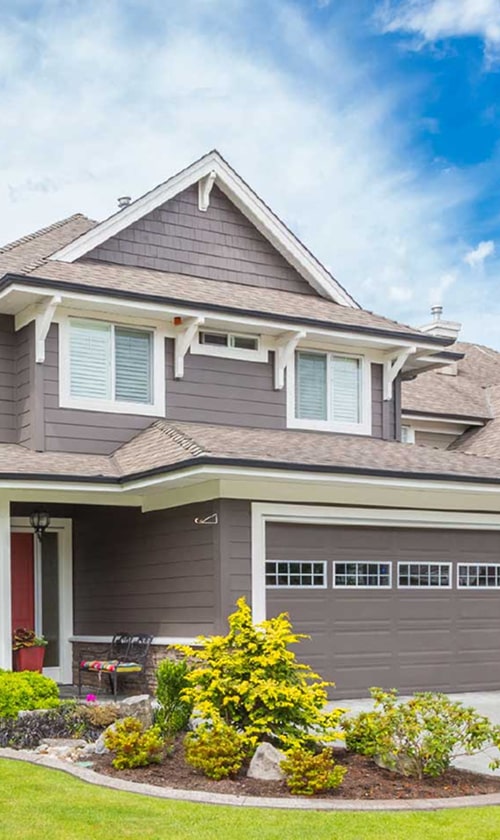Understanding HVAC System Efficiency

When we discuss HVAC systems, the term “efficiency” typically refers to how effectively these systems use energy to maintain comfort in our homes and workplaces. Improving energy efficiency is crucial because it leads to reduced energy consumption and operational costs, and minimizes energy waste.
Key factors affecting HVAC efficiency include:
- Type of System: Some HVAC systems are inherently more efficient than others due to design advancements.
- Age of the System: Newer systems often have better energy efficiency ratings due to improvements in technology.
- Maintenance: Regular maintenance can optimize the performance and efficiency of HVAC systems.
To assess an HVAC system’s efficiency, consider:
- SEER Rating (Seasonal Energy Efficiency Ratio): For cooling systems, a higher SEER rating indicates greater efficiency.
- AFUE (Annual Fuel Utilization Efficiency): For heating equipment, a higher AFUE rating means more efficient energy use.
- HSPF (Heating Seasonal Performance Factor): For heat pumps, a higher HSPF rating signifies better efficiency.
It’s important to understand that efficiency is not static; it can deteriorate over time or improve with intentional upgrades and behavioral changes. By ensuring that our HVAC systems are properly sized, regularly maintained, and upgraded when necessary, we can significantly reduce energy waste. Moreover, adopting energy-efficient behaviors, such as adjusting thermostats to adapt to outdoor temperatures, can also enhance our HVAC system’s energy efficiency. Remember, efficient systems not only contribute to environmental sustainability but also lead to substantial cost savings over time.
Optimizing Heating and Cooling

In optimizing heating and cooling systems, our focus is on enhancing the efficiency of heat transfer processes and the performance of equipment like furnaces, heat pumps, and air conditioners.
Enhancing Heating Efficiency
To improve the efficacy of our heating systems, we must guarantee that the furnace or heat pump operates at peak efficiency. One strategy is to:
- Regularly replace or clean filters, ensuring unimpeded airflow and better heat transfer.
Additionally, a furnace with a high Annual Fuel Utilization Efficiency (AFUE) rating consumes less fuel. For heat pumps, we look at the Heating Seasonal Performance Factor (HSPF) – units with higher HSPF ratings indicate greater efficiency.
Improving Cooling Effectiveness
For air conditioners, the Seasonal Energy Efficiency Ratio (SEER) rating is critical; the higher the SEER rating, the more efficient the unit. Steps we can take to boost cooling effectiveness include:
- Scheduling regular maintenance to keep the air conditioner running smoothly.
- Installing a programmable thermostat to optimize cooling cycles and reduce energy waste.
By paying close attention to these details, we significantly enhance our cooling system’s performance, contributing to an overall more energy-efficient HVAC system.
Upgrading and Maintaining HVAC Components

Effective energy efficiency in HVAC systems is largely dependent on strategic upgrades and diligent maintenance. By focusing on thermostat management, regular upkeep, and timely upgrades, we can significantly enhance system performance and reduce energy consumption.
Thermostat Management
Managing the thermostat effectively is key to maintaining energy efficiency. Installing a programmable thermostat allows us to set specific temperatures for different times of the day, potentially reducing energy usage when cooling or heating is not needed. For even greater control and convenience, upgrading to a smart thermostat can lead to more precise energy management and can be adjusted remotely. These thermostats often qualify for Energy Star ratings, ensuring high efficiency.
- Benefits of an upgraded thermostat:
- Adjustable scheduling: Fit our heating and cooling to our daily routine.
- Remote control: Modify settings from anywhere through a smart device.
Importance of Regular Maintenance
Regular maintenance is essential for keeping an HVAC system running at peak efficiency. We must regularly replace or clean the air filters to prevent dust and debris from compromising airflow and system efficiency. Clean filters support efficient operation and can significantly lower energy costs. Additionally, keeping condenser coils clean ensures that the system does not overwork to maintain the desired temperature, preventing unnecessary energy expenditure.
- Maintenance checklist:
- Check and replace filters every 1-3 months.
- Annually inspect condenser coils for cleanliness and integrity.
When to Consider HVAC Upgrades
When an HVAC system starts to show signs of inefficiency or frequent repairs are needed, it may be time to consider an upgrade. We recommend choosing systems with an Energy Star certification, which guarantees they meet or exceed high-efficiency standards. Investing in a high-efficiency HVAC system not only reduces energy costs but also minimizes the environmental footprint.
- Signs it’s time for an upgrade:
- Increasing energy bills despite regular maintenance.
- The HVAC system is over 10 years old.
- Upgrading benefits:
- Energy Star certified systems ensure maximum efficiency.
- Newer models accommodate advanced features like zoning and variable speed fans.
Home Insulation and Sealing Techniques
Effective home insulation and meticulous sealing are pivotal in elevating the energy efficiency of HVAC systems. Proper implementation can significantly reduce heating and cooling costs by maintaining a consistent indoor temperature.
Insulation Impact on Energy Efficiency
We understand that insulation is instrumental in mitigating heat exchange between the interior and exterior of a home. By focusing on key areas such as attics, walls, and floors, we can substantially enhance HVAC efficiency. Here are some specific insulation types and their applications:
- Fiberglass: Commonly used in batts or rolls, ideal for attic spaces and easily fits between joists and studs.
- Cellulose: Typically blown-in, making it suitable for filling enclosed walls or irregular spaces.
- Spray Foam: Expands to fill cracks and crevices, providing an excellent barrier against air infiltration.
Wall insulation, especially, plays a crucial role in creating an energy-efficient envelope. To achieve maximum efficiency, walls should be insulated to the recommended R-value for your specific climate zone.
Sealing and Air Leaks
We acknowledge that air leaks around windows, doors, and ductwork can lead to significant energy loss. To combat this, caulk and weather stripping are effective sealing materials that can prevent unwanted airflow.
- Windows/Doors: Apply weather stripping around movable components and use caulk to seal fixed joints and cracks.
- Ductwork: Seal all joints and connections with mastic sealant or metal-backed tape. Regular duct cleaning can also help maintain air flow efficiency.
It is essential to periodically inspect these areas for gaps or deterioration and address them promptly. Sealing these leaks can contribute to a marked improvement in overall HVAC system performance and energy conservation.
Financial Aspects and Additional Benefits
Improving the energy efficiency of HVAC systems not only reduces operating costs but also brings several health and environmental benefits. We’ll explore the financial incentives and additional advantages that homeowners can expect.
Saving Money Through Efficiency
Homeowners often seek ways to cut down utility bills and save money. Optimizing your HVAC system for better energy efficiency can lead to significant savings on operating costs. Consider the following:
- Programmable Thermostats: By installing a programmable thermostat, we can reduce energy consumption during hours when the home is unoccupied.
- Regular Maintenance: Simple actions like changing filters and servicing your HVAC unit bi-annually can improve efficiency and lower energy usage.
Moreover, rebates and incentives offered by governments and utility companies can substantially offset the initial investment in energy-efficient equipment.
Health and Environmental Advantages
Health benefits are synonymous with efficient HVAC systems. Improved indoor air quality and ventilation eliminates pollutants and reduces the risk of respiratory problems.
- High-efficiency Filters: Using high-efficiency particulate air (HEPA) filters can capture fine particles, enhancing indoor air quality.
- Enhanced Comfort: A well-maintained HVAC system provides consistent temperatures and humidity, which are pivotal for comfort and well-being.
On an environmental note, reducing our energy consumption diminishes greenhouse gas emissions, contributing to a healthier planet.
Frequently Asked Questions
Proper maintenance and upgrades can significantly enhance the performance and energy efficiency of HVAC systems. We address common queries related to optimizing these systems for better energy usage.
How can regular maintenance impact the energy efficiency of an HVAC system?
Regular maintenance is crucial for the optimal performance of HVAC systems. It includes cleaning filters, servicing motors, and checking refrigerant levels to ensure the system operates at peak efficiency, reducing energy consumption.
What are the best practices for optimizing thermostat settings for improved HVAC efficiency?
For optimal HVAC efficiency, setting programmable thermostats to adjust the temperature when the space is unoccupied can save energy. We recommend a setting that allows for a comfortable indoor climate while minimizing the energy use during off-peak hours.
What is the role of insulation in enhancing HVAC system performance?
Insulation plays a pivotal role in maintaining a constant temperature, minimizing the workload on HVAC systems. It prevents heat loss in winter and heat gain in summer, ensuring that systems are not overworked and energy usage is optimized.
How do variable speed motors contribute to the energy efficiency of an HVAC system?
Variable speed motors adjust their output according to the need, offering significant energy savings. They run at lower speeds for longer periods, providing better dehumidification, temperature regulation, and reduced electricity use.
In what ways can ductwork be improved to prevent energy loss?
Sealing and insulating ductwork can prevent heat loss and gain through leaks, holes, and poorly connected ducts. Improved ductwork ensures that air is efficiently distributed, leading to a reduction in energy consumption.
What are the most effective HVAC upgrades for energy savings in commercial buildings?
Upgrades such as installation of high-efficiency HVAC units, energy recovery ventilators, and smart building controls are effective for commercial buildings. These enhancements lead to lower operational costs and improved energy management.




